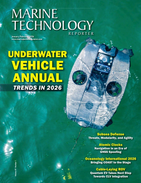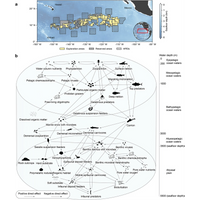
Seabed Mining: Defining Serious Harm
led by Australia’s national science agency CSIRO has developed the first environmental management framework designed to protect deep sea ecosystems during mining operations.The project was commissioned by The Metals Company Australia (TMC) and brought together scientists from CSIRO, Griffith University, Museums Victoria, the University of the Sunshine Coast and Earth Sciences New Zealand.The research focused on the Clarion Clipperton Zone (CCZ) in the Pacific Ocean – a region being considered for potential mining of polymetallic nodules containing critical minerals such as cobalt and nickel
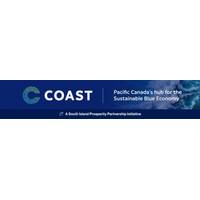
COAST, University of Victoria Join to Launch the BC Marine Energy and Decarbonization Hub
for the development and commercialization of marine renewable energy and decarbonization technologies in British Columbia.The BC Marine Energy and Decarbonization Hub is a core initiative of COAST, Pacific Canada’s hub for the sustainable blue economy, delivered in partnership with the University of Victoria. The Hub is the culmination of three decades of community-centered clean energy research and innovation conducted at the University of Victoria by the Institute for Integrated Energy Systems (IESVic), Pacific Regional Institute for Marine EnergyDiscovery (PRIMED) and Accelerating Community
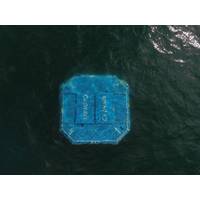
CalWave to Provide Wave Energy Tech for British Columbia Project
project is so far funded by a grant from TD Bank Group and the Clean Energy in Rural and Remote Communities Program within Natural Resources Canada.It comprises a consortium of other partners based across Canada, including the Pacific Research Institute for Marine Energy Discovery (PRIMED) at the University of Victoria, Barkley Project Group, Canpac Marine Services, and Environmental Dynamics.“This village was a trade hub, a place of great wealth sought after by our European visitors. Moving forward we want to establish Yuquot as a center once more, now in the context of setting examples for innovation
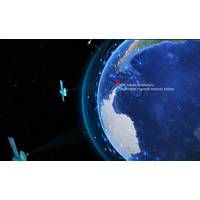
Canada and Spain Scientists Establish Antarctic Ocean Observatory
that will see Ocean Networks Canada (ONC) operating a subsea observatory at the Spanish Antarctic Station, providing year-round, near real-time data on ocean conditions there. This is the first time that ONC will extend its ocean monitoring outside Canadian waters.This partnership between ONC, a University of Victoria initiative, and the Spanish National Research Council (CSIC) will advance scientific understanding of one of the most underobserved parts of the planet, the Southern Ocean, or the Antarctic Ocean.The Spanish polar research vessel Hespérides that is transporting the ONC observatory
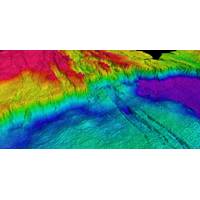
DISCOVERY: High-Res Mapping Tech Helps Find New Hydrothermal Vent Field
expedition began on 24 October 2023 in collaboration with the Galápagos National Park Directorate (GNPD), Charles Darwin Foundation, and the Ecuadorian Navy’s Oceanographic and Antarctic Institute (INOCAR).Other participating institutions included Memorial University of Newfoundland, University of Victoria, Dalhousie Press Release University, University of Ottawa, The Japan Agency for Marine-Earth Science and Technology, The United States Geological Survey, University of Quebec at Romouski, Kraken Robotics, and Fisheries and Oceans Canada.Anemone on volcanically formed geological structure
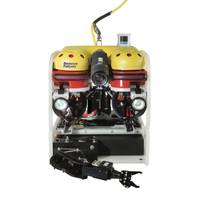
Ocean Dynamics Orders Deeper-rated Saab Seaeye Falcon ROV
Falcon because it can accommodate HD cameras and has the flexibility for integrating more advanced technologies.Chernov says the Falcon has proved to be reliable and able to stay working for longer than other underwater vehicles — and has better quality video.Ocean Dynamics supports the University of Victoria’s Ocean Networks Canada program of 50 instrumentation platforms and six observatories, plugged into over 900 kilometers of fiber-optic cable on the seafloor. The network provides marine scientists and coastal communities internet access to data for ocean management, disaster mitigation
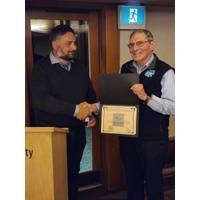
ASL’s Fissel Named a Fellow of CMOS
The Vancouver Island CMOS Center and ASL co-hosted a reception and award presentation ceremony at the University of Victoria, University Club, last month to honor those that have contributed significant scientific achievements. At theceremony, ASL’s David Fissel was named a Fellow of the Canadian Meteorological and Oceanographic Society (CMOS).Fissel was educated at the University of British Columbia, earning a B.Sc. in Honors Physics in 1971 and an M.Sc. in Physical Oceanography in 1975. His graduate research, carried out under Professor Steve Pond, was followed, in 1975, by working as a
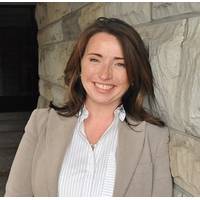
Preston Joins Global Diving & Salvage as Director of Marine Technology
operated underwater vehicle (ROV) services as part of the overall business strategies for both Seattle-based Global and sister company MER Diving.Preston brings to the role a background in mechanical engineering, nuclear physics, project management and entrepreneurship. She holds a BME from University of Victoria and a commercial diver certificate among numerous other certifications and achievements. Her career path includes organizational leadership roles at BC Hydro, BC Transit and Defense Construction Canada, and eight years as an engineer and supervisor at Triumf, Canada’s premier physics
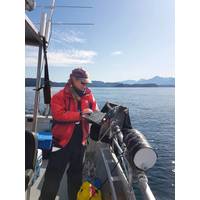
Reidy Awarded NSERC Grant in Partnership with ASL to Measure Baleen Whale Prey in BC
The University of Victoria Ph.D. candidate Rhonda Reidy has recently received funding for her project “Modifying an Acoustic Zooplankton and Fish Profiler for quantitative spatial sampling of baleen whale prey in British Columbia”, co-supervised by Dr. Laura Cowen and Dr. Stephane Gauthier. This funding comes from an NSERC Alliance grant awarded to Laura Cowen. Reidy studies baleen whale foraging dynamics. North Pacific humpback whales, in particular, are increasing in abundance and, in BC, are increasingly struck by vessels and entangled in fishing gear. New tools are required to observe

 December 2025
December 2025


